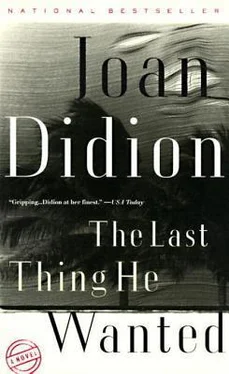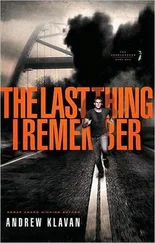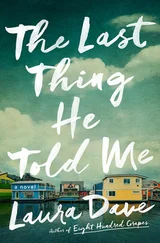So begins the four-hundred-and-seventy-six-page transcript of the taped statement that Treat Morrison committed to the Bancroft Library at Berkeley with instructions that it be sealed to scholars until five years after his death.
Those five years have now passed.
As have, and this would have been his calculation, any lingering spasms of interest in the matter of what later became known as the lethal, as opposed to the humanitarian, resupply.
Or so it would seem.
Since, seven years after Treat Morrison’s death and two years after the unsealing of the transcript, I remain the single person to have asked to see it.
MORRISON, TREAT AUSTIN, ambassador-at-large; b. San Francisco Mar. 3, 1930; s. Francis J. and Margaret (Austin) M; B.A., U. of Calif. at Berkeley, 1951; grad. National War College 1956; m. Diane Waring, Dec. 5, 1953 (dec. 1983). Commissioned 2nd lt. U.S. Army 1951, served in Korea, Germany, mil. attaché Chile 1953-54; spec, asst to commander SHAPE Paris 1955; attaché to US Mission to E.C. Brussels 1956-57
So Treat Morrison’s Who’s Who entry began.
And continued.
All the special postings enumerated, all the private-sector sojourns specified.
All there.
Right down to Office: Dept. of State, 2201 C St., N.W., Washington, D.C. 20520.
Without giving the slightest sense of what Treat Morrison actually did.
Which was fix things.
What was remarkable about those four hundred and seventy-six pages that Treat Morrison committed to the Bancroft Library was, as in his Who’s Who entry, less what was said than what was not said. What was said was predictable enough, globalism versus regionalism, full Boland, failed nations, correct interventions, multilateral approach, Directive 25, Resolution 427, criteria not followed, nothing Treat Morrison could not have said at the Council on Foreign Relations, nothing he had not said, up there in the paneled room with the portrait of David Rockefeller and the old guys nodding off and the young guys asking pinched textbook questions and the willowy young women who worked on the staff standing in the back of the room like geishas, shuttle up and hop a flight back down with one of the corporate guys, maybe learn something for a change, you’d be surprised, they’ve got their own projections, their own risk analysts, no bureaucracy, no commitments to stale ideologies, none of those pinched textbook questions, they can afford to keep out there ahead of the power curve, corporate guys are light-years ahead of us.
Sometimes.
Four hundred and seventy-six pages on correct interventions and no clue that a correct intervention was for Treat Morrison an intervention in which when you run out of options you can still get your people to the airport.
Four hundred and seventy-six pages with only a veiled suggestion of Treat Morrison’s rather spectacular indifference to the conventional interests and concerns of his profession, only an oblique flash of his particular maladaption, which was to be a manipulator of abstracts whose exclusive interest was in the specific. You get just the slightest hint of that maladaption in tropical storm due from the southeast and hard rain already falling, just the barest lapse before the sonorous recovery of outside these offices I am about to vacate at the Department of State in the City of Washington, District of Columbia.
No hint at all of his long half-mad gaze.
Wide spindrift gaze toward paradise, Elena McMahon said the first time she was alone with him.
He said nothing.
A poem, she said.
Still he said nothing.
Something galleons of Carib fire, she said, something something the seal’s wide spindrift gaze toward paradise.
He studied her without speaking. Diane read poetry, he said then.
There had been a silence.
Diane was his wife.
Diane was dead.
Diane Morrison, 52, wife of, after a short illness, survived by, in lieu of flowers.
I wasn’t thinking about the Carib fire part, Elena had said finally.
Yes you were, Treat Morrison had said.
What we want here is a montage, music over. Angle on Elena. Alone on the dock where her father berthed the Kitty Rex. Working loose a splinter on the planking with the toe of her sandal. Taking off her scarf and shaking out her hair, damp from the sweet heavy air of South Florida. Cut to Barry Sedlow. Standing in the door of the frame shack, under the sign that read RENTALS GAS BAIT BEER AMMO. Leaning against the counter. Watching Elena through the screen door as he waited for change. Angle on the manager. Sliding a thousand-dollar bill beneath the tray in the cash register, replacing the tray, counting out the hundreds.
No place you could not pass a hundred.
There in the sweet heavy air of South Florida.
Havana so close you could see the two-tone Impalas on the Malecón.
Goddamn but we had some fun there.
The music would give you the sweet heavy air, the music would give you Havana.
Imagine what the music was as: Barry Sedlow folded the bills into his money clip without looking at them, kicked open the screen door, and walked down the dock, a little something in the walk, a definite projection of what a woman less wary than Elena might (might, could, would, did, wanted to, needed to) mistake for sex.
Close on Elena. Watching Barry Sedlow.
“Looks like you’re waiting for somebody,” Barry Sedlow said.
“I think you,” Elena McMahon said.
Her father had begun to run the fever during the evening of Saturday the sixteenth of June. She had known something was wrong because the drink he had made at seven remained untouched at ten, its color mottled by melted ice.
“I don’t know what that foul ball expected to get out of showing up here,” he said about midnight.
“What foul ball,” she said.
“What’s his name, Epperson, Max Epperson, the guy you were cozying up with tonight.”
She said nothing.
“Come on,” he said. “Cat got your tongue?”
“I don’t remember seeing anyone but you tonight,” she said finally.
“Epperson. Not the guy with the mickey-mouse vest. The other one.”
She had framed her response carefully. “I guess neither of them made an impression on me.”
“Epperson made an impression on you all right.”
She had thought this over. “Listen to me,” she had said then. “No one was here.”
“Have it your way,” he said.
She had driven to an all-night drugstore to buy a thermometer. His temperature, when she managed to take it, was 102. By morning it was 103.2, and she took him to the emergency room at Jackson Memorial. It was not the nearest hospital but it was the one she knew, a director she and Wynn knew had been shooting there, Catherine had been on spring vacation and they had taken her to visit the location. Nothing straight bourbon won’t fix, her father said in the emergency room when the triage nurse asked what was wrong with him. By noon he had been admitted and she had signed the forms and heard the difference between Medicare A and B and when she got back upstairs to the room he had already tried to yank out the IV line and there was blood all over the sheets and he was crying.
“Get me out of here,” he said. “Goddamnit get me out of here.”
The IV nurse was on another floor and by the time she got back and got the line running again the nurse with the narcotics keys was on another floor and it was close to five before they got him sedated. By dawn his temperature had dropped below 101 but he was focused exclusively on Max Epperson. Epperson was welshing on his word. Epperson had floated a figure of three dollars per for 69s and now he was claiming the market had dropped to two per. Somebody had to talk reason to Epperson, Epperson could queer the whole deal, Epperson was off the reservation, didn’t know the first thing about the business he was in.
Читать дальше












